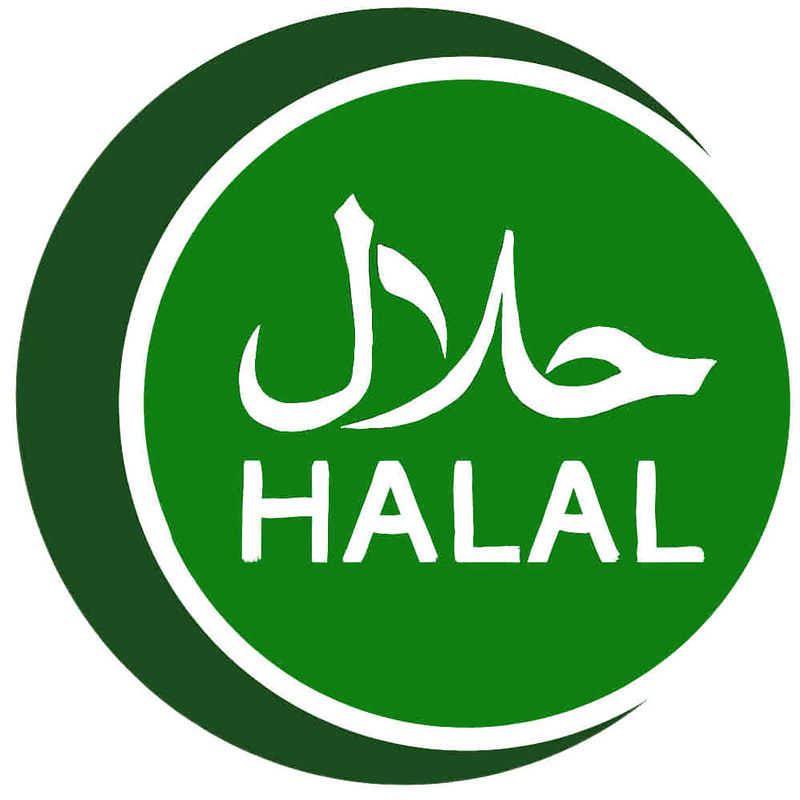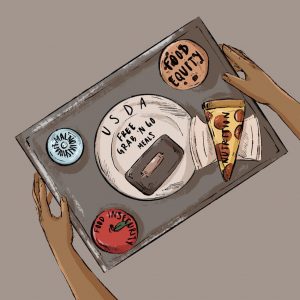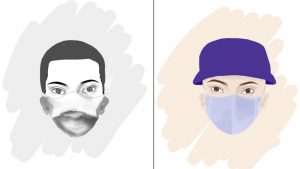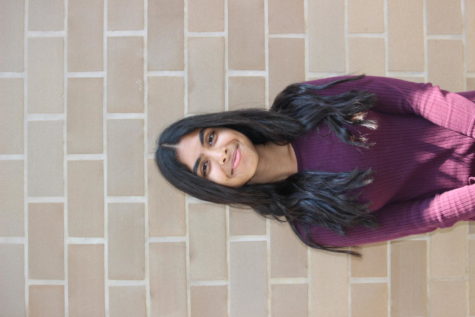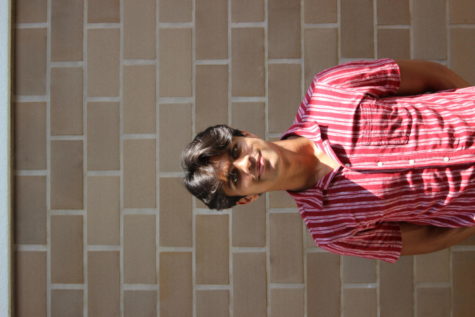What does “Halal” Mean?
An important part of Islam is following a halal diet.
April 23, 2021
What does ‘Halal’ Mean?
‘Halal’ is a term you may have often heard or noticed signage of at restaurants. You may have also heard people asking, “Is this halal?” or, “Is the meat you serve here halal?”, making you ponder what this word means. According to the Islamic Council of Victoria, “Halal is an Arabic word meaning lawful or permitted. About food, it is the dietary standard, as prescribed in the Qur’an (the Muslim scripture).”
In Islam, Muslims are given firm guidelines for what they can and can’t eat. Things that Muslims are forbidden from eating are called haram, and things they can eat are halal.
What is ‘Halal’ meat?
The most common usage of the word “halal” comes from meat. Muslims are allowed to consume the following: lamb, beef, goat, and chicken. However, what some people fail to grasp is not all of those animals’ meat is halal. For an animal to become permissible to eat in Islam, it must be raised and butchered in a specific way and have a prayer said before the slaughtering.
Is halal meat healthy? Yes, the animals are fed a vegetarian diet and cannot be treated with antibiotics, growth hormones, or other additives. Houston Press states that “Traditionally, animals raised for halal meat are also taken care of better than animals raised on factory farms. Part of the Islamic law that dictates preparation of meat requires that the animal be treated well during its life and the slaughtering process.” Muslims are also not allowed to slaughter a sick animal. The slaughtering process requires the blood of an animal to be completely drained out from its carcass. The resulting meat is hence free from contamination caused by bacterial growth.
Some types of meat are not allowed or permissible in Islam regardless of following the proper rituals. These meats consist of all carnivores with fangs such as lions, tigers, wolves, dogs, and cats; all birds with talons such as eagles, hawks, and vultures; domesticated donkeys; animals which are reptiles such as snake, scorpions, lizards, etc; and any animal which has died due to natural causes or has not been butchered including lamb, beef, goat, and chicken.
Other foods constituting as ‘Haram’
Although the connotation of halal suggests things related to meat, the true definitions of halal and the counterpart, haram (impermissible), extend much further. To continue the theme of consumable items, the most blatant of these is alcohol. Alcoholic beverages are forbidden in Islam regardless of age. This ruling is present due to the lack of control individuals experience when under the influence of this substance.
The rulings of alcohol prohibition can be broadened to include all intoxicants under the same logic. Anything that leaves someone incapable of controlling their body is considered haram in Islam, so this rules out smoking, drugs, and psychedelics. As with all other things considered haram, this ruling does not hold in the face of medicinal purposes. Thereby, drugs such as Nyquil and Xanax are permissible (when used in proportional quantities).
Another substance that many do not associate with haram is gelatin. Surprisingly to many, gelatin contains either pork or beef; therefore, the only time it would be permissible to eat gelatin would be when it is made with halal beef or meat. According to People for the Ethical Treatment of Animals (PETA), “Gelatin is a protein obtained by boiling skin, tendons, ligaments, and/or bones with water. It is usually obtained from cows or pigs. Gelatin is not vegan.” Unfortunately, this is not common in places such as the United States so this takes many common treats such as marshmallows, gummies, and Rice Krispies off the table.
Halal Foods in the Tri-Valley
However, numerous restaurants boast the “Halal” sign on their front door. These restaurants have 100% halal food, and they are permissible for all Muslims to eat at. Some of those popular restaurants are Mirchi Cafe and Masala Pizza (7083 Village Parkway, Dublin), The Kebab Shop (3141 Crow Canyon Place, San Ramon), Falafel Flame (3772 Fallon Road, Dublin), The Port of Peri-Peri (4275 Rosewood Drive, Unit 20, Pleasanton), and iniBurger (4233 Rosewood Drive #11, Pleasanton).
There are also many specialty grocery stores where you can get halal meat and products like Sahara Market on 6783 Dublin Blvd in Dublin, and Rahma Mediterranian Market on 7111 Village Parkway in Dublin. There, you can find everything halal from gelatin to meat products. Surprisingly, you can also find Australian Halal lamb and lamb products at leading American stores like Costco, Safeway, and Target. At Restaurant Depot you can get quite a few varieties of halal meats.
Halal meat is not only preferred by Muslims: many non-Muslims are drawn towards it as they are interested in adopting healthy eating choices. There has been a massive growth in the halal food industry in recent times. After all, as Herbert A. Simon said, “Anything that gives us new knowledge gives us an opportunity to be more rational.”

